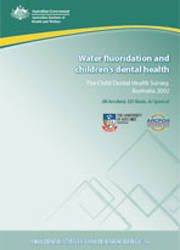Summary
The Child Dental Health Survey provides national yearly information on the dental health of children attending school dental services in Australia. This report describes and discussesthe survey and presents analyses for the year 2002. The data cover 136,505 children from all states and territories except for New South Wales.
In 2002:
Among 6-year-olds—
- nearly one half (47.4%) had a history of decay in the deciduous (‘baby’) teeth—that is, one or more decayed, missing and filled deciduous teeth
- on average they had two decayed, missing and filled deciduous teeth per child
- but the 10% of children with the most extensive history of deciduous tooth decay had more than nine deciduous teeth affected, which was about four and a half times the national average.
Among 12-year-olds—
- over 40% had some history of decay in their permanent teeth—that is, one or more decayed, missing and filled permanent teeth
- on average they had just over one decayed, missing and filled permanent tooth per child
- but the 10% with the most extensive history of permanent tooth decay had nearly five permanent teeth affected which was almost five and a half times the national average of decayed, missing and filled teeth.
International comparisons and comparisons based on access to fluoridated water:
- children’s dental health in Australia is better than in many other countries. Of the 44 countries with comparable national data available, Australia had the seventh lowest average number of decayed, missing and filled permanent teeth among 12-year-olds
- however, children from areas where drinking water contained negligible fluoride had poorer dental health than did children from areas with either naturally or artificially fluoridated water
- the poorer dental health of children from areas with negligible levels of fluoride in the water persisted across differing areas of residential location and levels of socioeconomic disadvantage.



